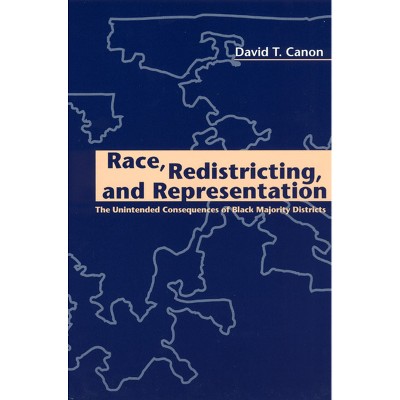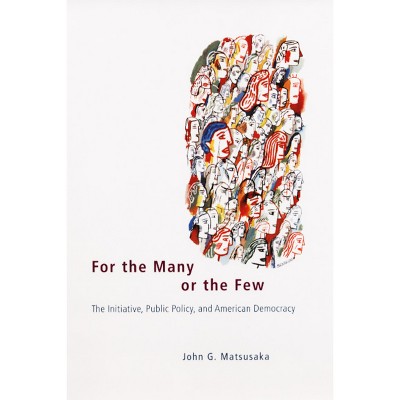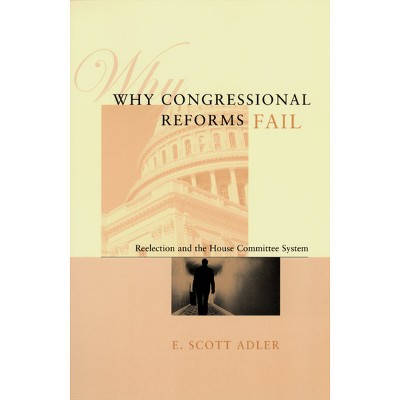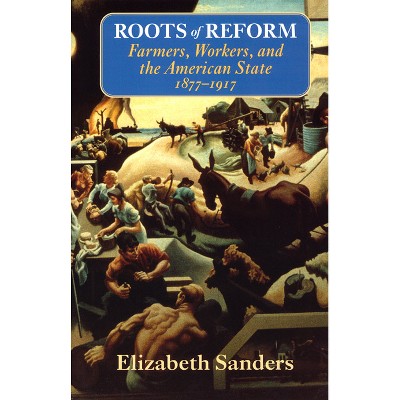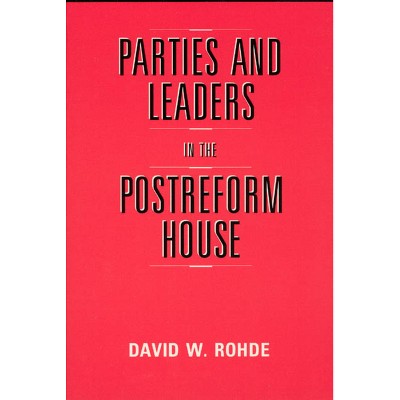Sponsored

The Two Reconstructions - (American Politics and Political Economy) by Richard M Valelly (Paperback)
In Stock
Sponsored
About this item
Highlights
- A groundbreaking history of the Reconstruction and the Civil Rights Eras that reveals the importance of biracial coalitions The Reconstruction era marked a huge political leap for African Americans, who rapidly went from the status of slaves to voters and officeholders.
- About the Author: Richard M. Valelly is professor of political science at Swarthmore College.
- 348 Pages
- Social Science, Ethnic Studies
- Series Name: American Politics and Political Economy
Description
Book Synopsis
A groundbreaking history of the Reconstruction and the Civil Rights Eras that reveals the importance of biracial coalitions The Reconstruction era marked a huge political leap for African Americans, who rapidly went from the status of slaves to voters and officeholders. Yet this hard-won progress lasted only a few decades. Ultimately a "second reconstruction"--associated with the civil rights movement and the Voting Rights Act--became necessary. How did the first reconstruction fail so utterly, setting the stage for the complete disenfranchisement of Southern black voters, and why did the second succeed? These are among the questions Richard M. Valelly answers in this fascinating history. The fate of black enfranchisement, he argues, has been closely intertwined with the strengths and constraints of our political institutions. Valelly shows how effective biracial coalitions have been the key to success and incisively traces how and why political parties and the national courts either rewarded or discouraged the formation of coalitions. Revamping our understanding of American race relations, The Two Reconstructions brilliantly explains a puzzle that lies at the heart of America's development as a political democracy.Review Quotes
"Richard M. Valelly's magisterial work The Two Reconstructions will stand for a long time as the definitive political analysis of racial suppression and redemption in American democracy. . . . Valelly [compares] the two reconstructions in every dimension--the coalition politics on which they rested, the role of courts, the dynamics of Southern white resistance, and the legislative and judicial means for securing democracy. Many of the instruments of the second reconstruction, such as federal registrars, were echoes of the aborted first one. Likewise, the subterfuges devised by white supremacists to destroy black suffrage in the late 19th century were often the same ones still deployed, or redeployed, a century later. . . . With the [Voting Rights Act] up for renewal in 2007, Valelly shows how more conservative courts and new tactics of vote dilution or suppression again put full democracy at risk. 'As a country, we still have important business to do.'"
--Robert Kuttner "American Prospect""The Two Reconstructions blends sophisticated theory, nuanced history, creative analysis, and smooth writing. Valelly uses political science to rewrite one of the most important themes in American history. The argument is powerful and original, and the scholarship is nothing short of dazzling."
--James A. Morone
"The Two Reconstructions is an important book that rightly places the issue of black enfranchisement at the center of the story of American democracy. Fusing historical research with the deft use of political science theory, Valelly significantly deepens our understanding of the long and all-too-halting evolution of African American political rights. With the Voting Rights Act up for renewal in 2007, The Two Reconstructions is a timely study of our past with direct bearing on our future."--Alexander Keyssar
"A terrific piece of scholarship. Valelly does a superb job of suggesting the ways in which differences in party and jurisprudence building contributed to the starkly different outcomes of the first and second reconstructions. Valelly's work is an absolutely essential source for scholars, lawyers, and policy makers who want to understand why the political aspects of the first reconstruction failed and how the second reconstruction managed to stabilize itself." --Pamela S. Karlan
"A valuable contribution to the literature on American political development and the Reconstruction era that should be of some interest to judicial scholars, especially those interested in supplementing their knowledge of the non-judicial aspects of the first Reconstruction."--Emery G. Lee III "Law and Politics"
"In these days of microscopic studies in the social sciences and humanities, the author's breadth of intellectual concern is admirable indeed." -- "Political Science Quarterly"
"In this well researched and historically rich study, Valelly proclaims loudly: institutions matter! His comparison of the failure of the first reconstruction with the success of the second, point to the importance of institutional structures to the formation of coalitions necessary to sustain black America's foothold in the American political system. This is a major contribution and a must read for American politics and race."--Paula D. McClain, coauthor of Can We All Get Along? Racial and Ethnic Minorities in American Politics
"Valelly has made and judicious use of history. It is a timely and instructive book to read."--Steven F. Lawson "Journal of Southern History"
About the Author
Richard M. Valelly is professor of political science at Swarthmore College. He is author of Radicalism in the States, published by the University of Chicago Press, and his essays have appeared in the New Republic and the American Prospect.Shipping details
Return details
Trending Non-Fiction






